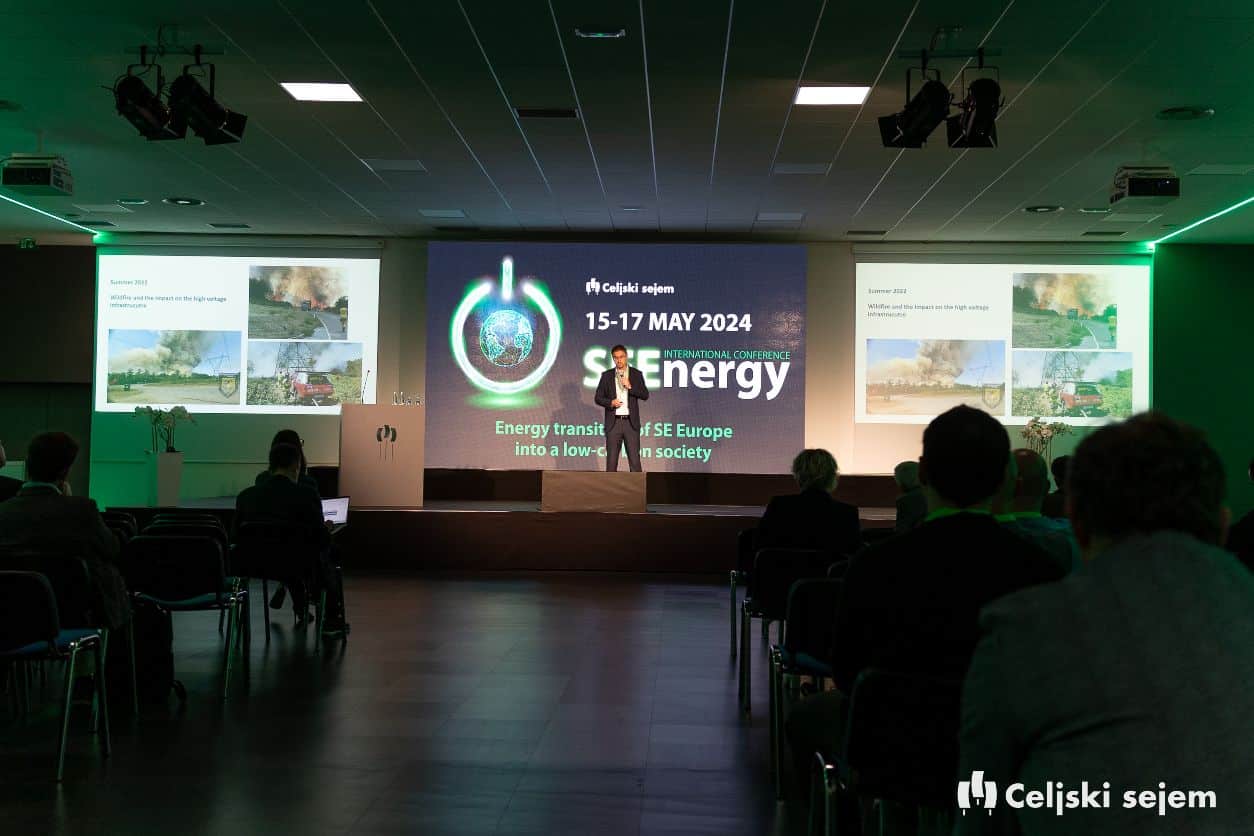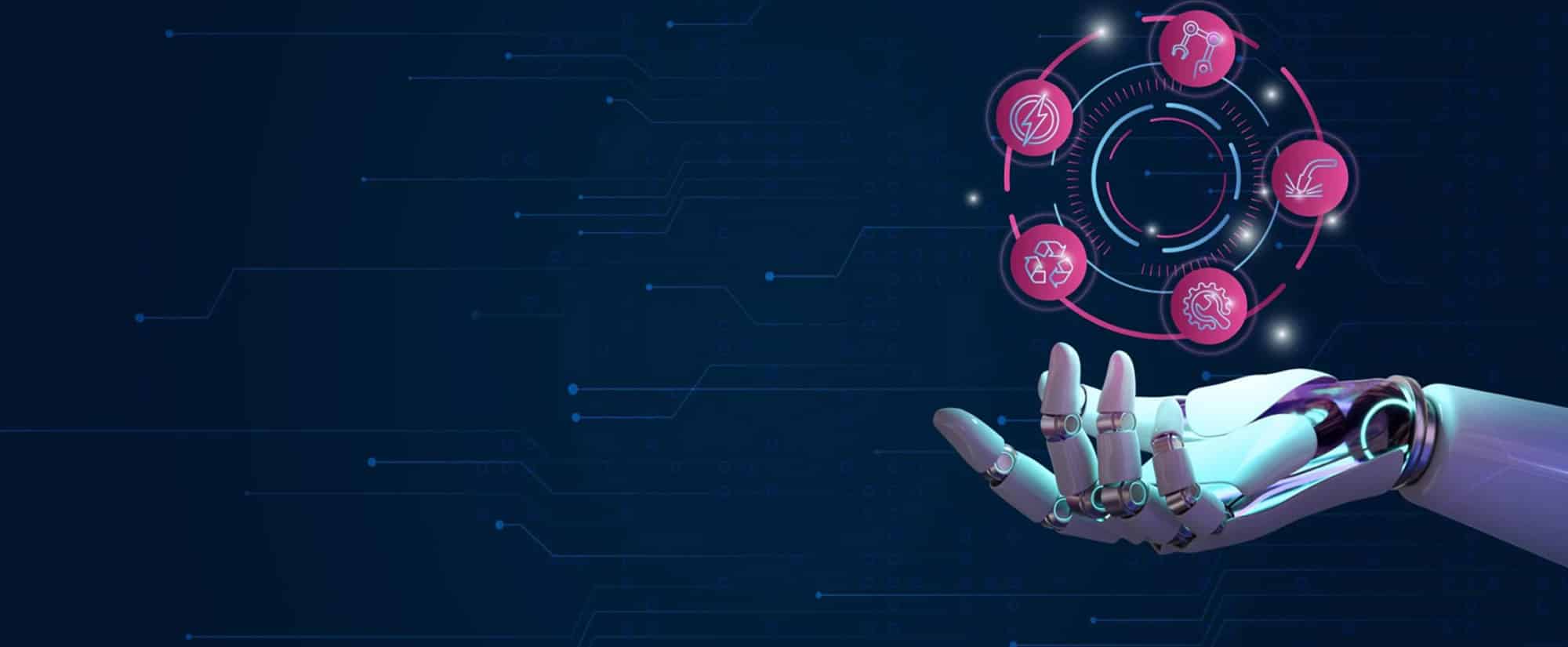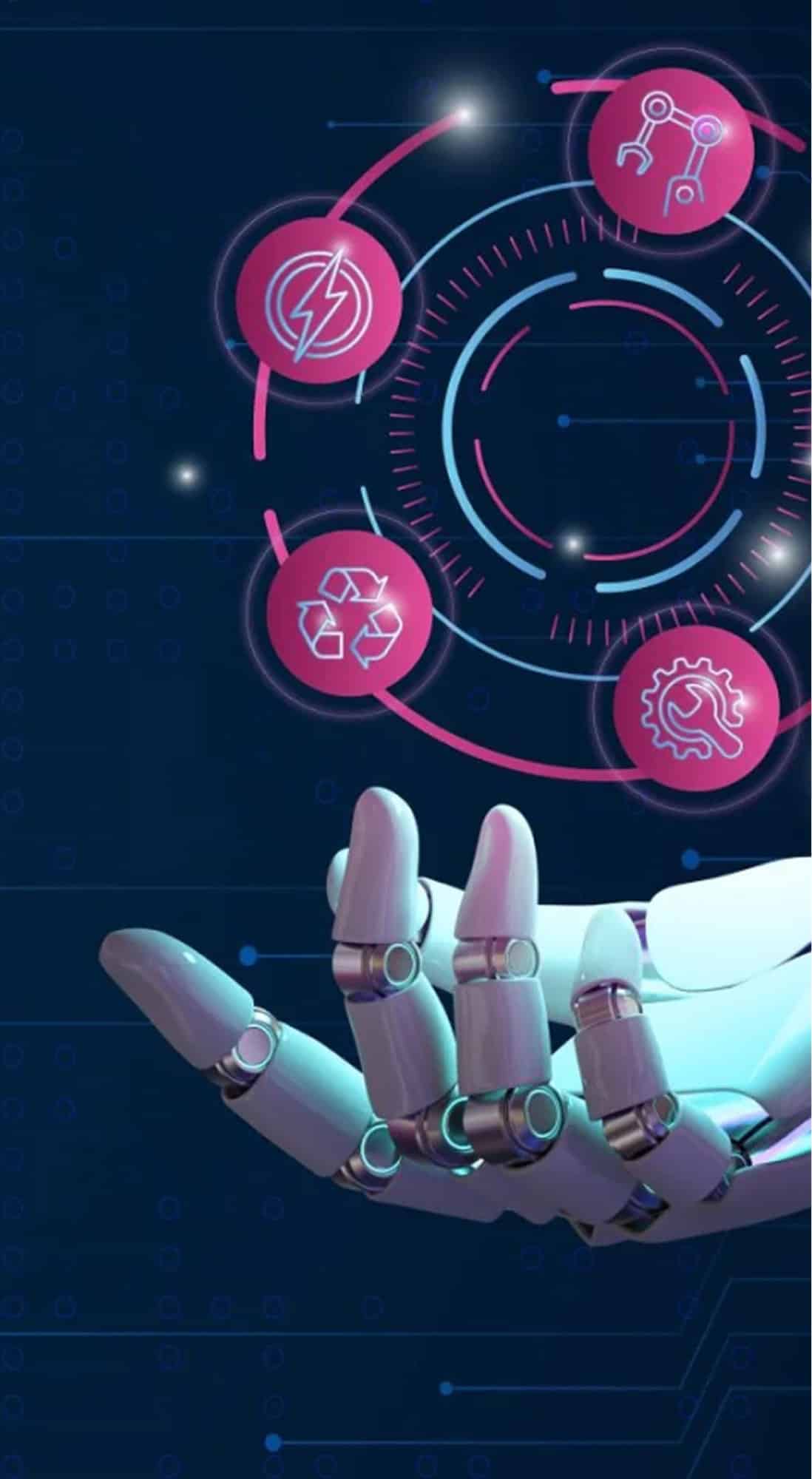The International Green Conference We’ve All Been Waiting For: SEENERGY 2024 Delivers New Solutions and Successful Practices for the Green Transition of Southeastern Europe!
With the successful conclusion of the SEEnergy international energy conference, held from May 15 to 17 at the Celje Fairgrounds, we have collectively opened the door to new challenges and opportunities in the energy sector.
We are proud to announce that we hosted approximately 600 visitors, 86 influential speakers, 10 thematic sections, and 20 innovative exhibitors, all of whom together created an unforgettable event. This conference is more than just a gathering of experts – it is a movement that encourages much-needed change and pushes the boundaries in the energy sector.
The conference provided insights into various forms of energy solutions that not only lead to a global green transition but are also financially viable and adaptable for businesses and industries alike.
RICH PROGRAMME
The three-day conference was divided into 10 major sections, half of which were dedicated to industry and other major energy consumers. Let’s look at some of the standout topics:
- Digitalization in Energy Discussion on the role of digital solutions in modern power transmission networks and energy distribution.
- Wind Energy Presentations on the goals, regulations, and technologies of wind farms, followed by a panel discussion with leading experts.
- CO2 Capture and Preparation Discussions on innovative approaches to capturing and utilising carbon dioxide in the industry.
- Hydrogen as an Environmentally Friendly Energy Carrier An overview of technological innovations and financial incentives for using hydrogen in the energy sector.
- Solar Energy Presentations on legislative updates and innovative solutions in photovoltaics, followed by a panel discussion on harnessing solar energy in Southeastern Europe.
- Financing Energy Projects Introduction of various financial mechanisms and incentives for the green energy transition.
- Heat Pumps and Shallow Geothermal Energy Discussions on the use of heat pumps and geothermal energy as sustainable solutions for heating and cooling.
- Evolution of Policies for the Green Transition Ministerial discussion on changes and trends in national energy and environmental policies.
- Decarbonization of Southeastern Europe Discussions on the transition to a low-carbon society in non-EU countries in Southeastern Europe.
- The Role of Nuclear Energy in the Green Transition Panel discussion on the role of nuclear energy in achieving green transition goals, featuring practical examples.
DETAILS OF THE SEENERGY CONFERENCE EVENTS
WEDNESDAY, MAY 15, 2024
In Blue Hall 1, we focused on digitalization in energy, presenting solutions for reducing network charges and discussing the new network charge calculation that came into effect on July 1 of last year. Digitalization in energy brings numerous advantages, such as enhanced employee training using augmented reality (AR) and drones, better network management and security, and more efficient energy use with storage systems enabling seasonal energy consumption. Connecting different systems prevents overloads and optimises energy production and distribution from solar power plants. The development of independent applications and new technologies contributes to network stability and better adaptability to new market demands, which will be crucial for stable and efficient energy supply in the future.
Blue Hall 1 also hosted a conference on wind energy, where experts presented the goals, regulations, and incentives for wind farms in Slovenia, debunked myths and truths about wind farms, and shared Croatian experiences in this field. The presentations included the latest technologies for harnessing wind energy and EDF’s experiences in developing wind farms in Europe. The event concluded with a panel discussion on how Slovenia can adapt foreign best practices for building wind farms.
In Blue Hall 2, the first session addressed CO2 capture and preparation, particularly interesting for companies operating facilities with greenhouse gas emission permits and others with CO2 emissions in their production processes. Experts shared valuable insights into the importance of CO2 capture and preparation and the implementation of these concepts in real industrial environments. Innovative approaches to achieving net-zero CO2 emissions were presented, including the ZeCarb service and CO2 separation and synthesis technologies, laying the foundation for future measures in combating climate change.
The first day in Blue Hall 2 concluded with a session on hydrogen as an environmentally friendly energy carrier, discussing its potential contribution to achieving European climate and energy goals. A wide range of topics were covered, including the use of hydrogen to meet European climate and energy targets, the role of energy policies in supporting hydrogen technologies, opportunities and challenges associated with hydrogen, and discussions on hydrogen production, emission-free operations with clean hydrogen, and hydrogen use in production processes such as glass manufacturing. The conference provided an excellent opportunity to discuss the role of hydrogen in creating a more sustainable and energy-efficient future.
THURSDAY, MAY 16, 2024
In the first session of the day in Blue Hall 1, we focused on the future of local communities in a low-carbon society, presenting key challenges and best practices. Speakers addressed issues related to involving the public sector, households, and businesses in local energy cooperatives, risks in implementing community self-sufficiency in electricity, and legal dilemmas and pitfalls in project implementation. Additionally, the Energy Cities network was introduced, enriching the discussion on the challenges and opportunities for local communities in transitioning to a low-carbon society.
In the second session of the day, we covered the financing of energy projects, presenting various aspects and possibilities for funding the sustainable energy transition. Speakers discussed topics such as the role of the European Investment Bank in financing energy projects, planned calls from the Ministry of Economic Development and Technology to promote the green energy transition, mechanisms to encourage investments in renewable energy sources, and financial incentives from the Eco Fund for businesses. Practical examples, such as the Ajdovščina Solar Community and the formation of a self-sufficient community in practice, were highlighted, contributing to a better understanding of the possibilities and challenges in financing sustainable energy projects.
In the first session on harnessing solar energy in Southeastern Europe, held in Blue Hall 2, current challenges and innovations in solar technology were presented. Speakers highlighted legislative updates in the photovoltaic industry, discussed the economic feasibility of building solar power plants, presented services for end consumers, and discussed the latest technologies for managing and securing photovoltaic systems. Advanced solutions for a green future, such as the SolarEdge ONE Energy Management System and Huawei Fusionsolar Smart PV, were showcased, along with an analysis of the ambitions of National Energy and Climate Plans in Southeastern Europe. The conference contributed to discussions on effectively utilising solar energy potential in the region and its role in the transition to sustainable energy.
The second session in Blue Hall 2 presented the latest trends and technological developments in geothermal heat pumps in Europe and the use of shallow geothermal energy in Slovenia. Speakers highlighted the importance of exploring shallow geothermal energy for sustainable solutions in industry and urban planning and its integration into energy systems. Special attention was given to the use of geothermal heat pumps as versatile energy solutions for residential and commercial projects and the green transition with air-to-water heat pumps. The conference thus contributed to spreading knowledge and discussing the importance and perspectives of using geothermal energy for a sustainable economy.
FRIDAY, MAY 17, 2024
On the final day of the SEEnergy conference, a lively ministerial discussion on the evolution of policies and the update of National Energy and Climate Plans (NECPs) in Southeastern Europe took place. In his opening address, the Minister of Environment, Climate, and Energy of the Republic of Slovenia, Mag. Bojan Kumer, highlighted key goals and emphasised the necessity of cooperation among EU member states. This was followed by an engaging panel where ministers of energy and environment from EU member states in Southeastern Europe shared their views and experiences. Key points included turning challenges into opportunities and the region’s role in achieving ambitious climate goals. The discussion featured distinguished speakers, including state secretaries, ambassadors, and other high representatives and officials from Southeastern European countries.
The decarbonisation of southeastern Europe was another key theme discussed in the second panel. The Director of the Energy Community, Arthur Lorkowski, initially highlighted the challenges and opportunities of decarbonisation in the region. Energy and environment ministers from non-EU Southeastern European countries then shared their views and presented measures and plans for reducing carbon emissions. The discussion covered various aspects, including economic, political, and technological aspects of the transition to sustainable energy. Participants agreed that cooperation among countries is crucial for successfully implementing and achieving decarbonisation goals in the region. The conference thus enabled a constructive exchange of opinions and strengthened partnerships among countries to jointly address climate challenges.
Parallel to the ministerial discussions, expert panels on the role of nuclear energy in the green transition were also held. Renowned nuclear energy experts shared their experiences and insights in the panel discussion. The General Director of GEN energija, Dr. Dejan Paravan, emphasised the importance of nuclear energy as a sustainable and reliable option for generating electricity without carbon dioxide emissions. Experts discussed various aspects of nuclear energy, including its impact on the green transition, technological and safety aspects, and possibilities for developing innovative solutions. This was followed by presentations of practical examples, including the construction of the Vrbina LILW Repository, which represents an important step towards sustainable management of radioactive waste. The final presentations focused on the technological and strategic aspects of nuclear energy, highlighting its importance in achieving (near) zero carbon emissions.
EXPLORING, CONNECTING, INNOVATING – BUILDING A SUSTAINABLE ENERGY FUTURE TOGETHER
Participants had the opportunity to explore exhibition spaces, connect with other professionals, and exchange opinions and experiences in a relaxed atmosphere throughout the conference. The event was a unique opportunity for networking and forging new business connections.
We thank all participants, speakers, and partners for their contributions to the rich programme and exchange of ideas and experiences. Together, we created an inspiring environment that encouraged discussion on key challenges and opportunities in the energy sector. We look forward to further collaboration and idea exchange in the future and believe that together we will co-create a more sustainable and efficient energy future in southeastern Europe.
SEEnergy bids farewell for this year, and we invite you to view highlights on our official website and social media channels of the Celje Fair.
LET’S CONTINUE ON THE GREEN PATH TO A SUSTAINABLE TOMORROW!









